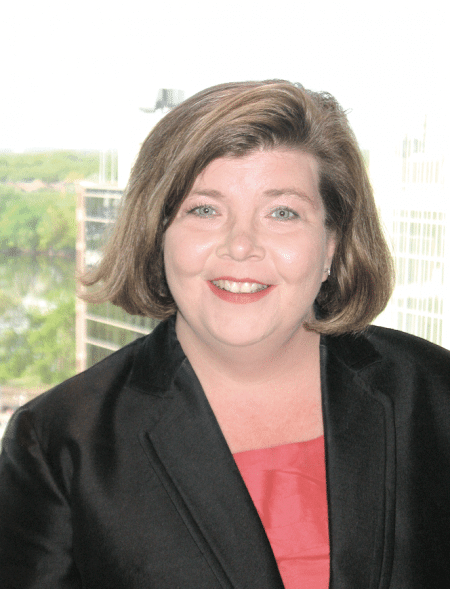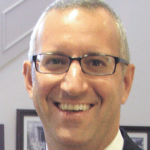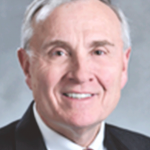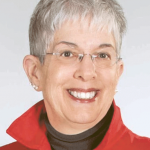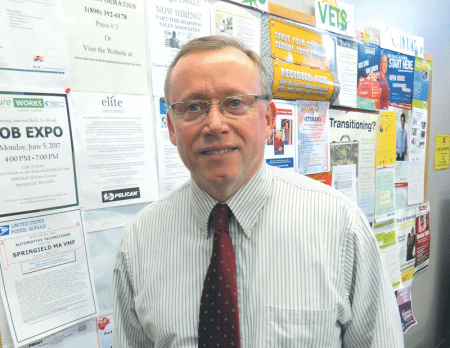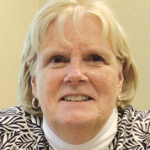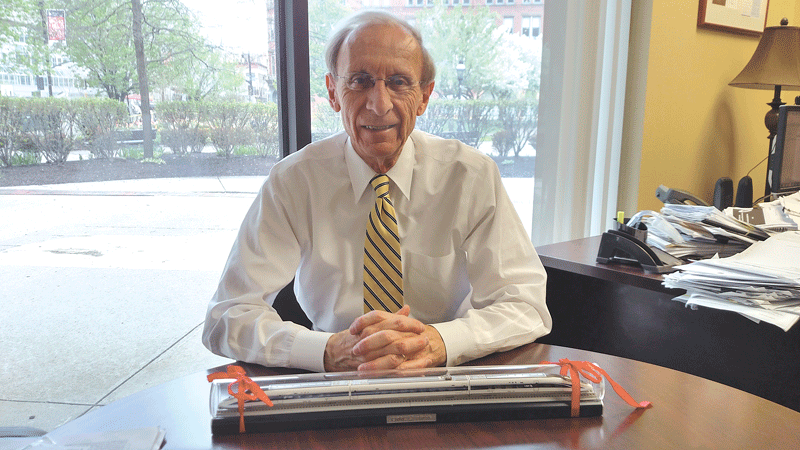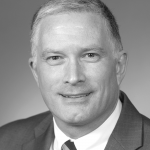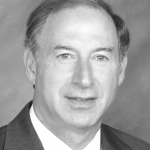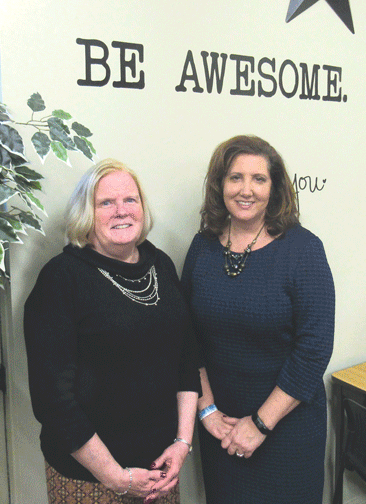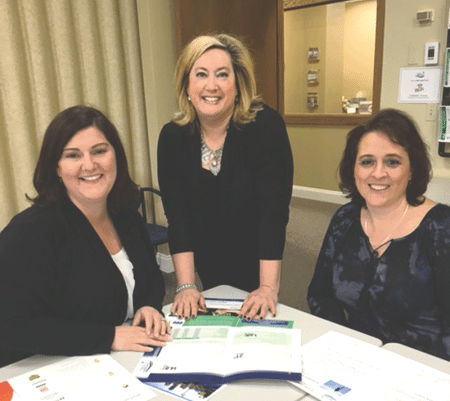1BERKSHIRE
(413) 499-1600
• Aug. 23: BBQ Chamber Nite, 5-7 p.m., hosted by MountainOne!, 111 Silver Lake Blvd., Pittsfield. Remember to bring your business card so you can enter to win a door prize. Register online at 1berkshire.com/event/chamber-nite-15.
FRANKLIN COUNTY CHAMBER OF COMMERCE
(413) 773-5463
• Sept. 13: “Are You Making Money or Losing Your Shirt?” 11 a.m. to 1 p.m., hosted by TD Bank Greenfield, 324 Main St., Greenfield. N et Profit gauges how well a business manages both revenue generation and expenses, assuming that owners are not taking out much cash in the form of distributions. Being profitable also means the company is building equity. What does this all mean? Join us to learn more about your financial statements and how you can use them to improve your profit picture. TD Bank wants to be sure that you have strong tools to understand and control your business. With that objective in mind, at the end of the workshop, each attendee will be entered into a drawing for a free copy of Quickbooks Pro, a $220 value. A light lunch will be provided. Register at www.franklincc.org.
• Sept. 22: Franklin County Chamber of Commerce Breakfast, 7:30-9 a.m., hosted by Franklin County Tech School. Register at www.franklincc.org.
• Sept. 27: “Start Your Own Business,” 8:30-11:30 a.m., hosted by Franklin County Chamber of Commerce, 395 Main St., Greenfield. Starting a small business requires more knowledge, skills, perseverance, and planning than meets the eye. This three-hour workshop will help you understand the details, challenges, opportunities, and rewards of owning and operating your own business through the real-life experiences of several highly successful entrepreneurs. This course is a suggested prerequisite for our Business Planning workshop. Cost: $25. Register at www.franklincc.org.
GREATER CHICOPEE CHAMBER OF COMMERCE
(413) 594-2101
• Aug. 25-26: Third annual Downtown Get Down! Noon to 9 p.m. on Aug. 25 and 10 a.m. to 9 p.m. on Aug. 26. Live music, local artists and crafters, entertainment actsm, and a variety of food vendors return to the streets of Chicopee Center this summer. This year’s event will feature a 5k race for the first time, starting at 9 a.m. on Aug. 26. Come downtown and celebrate Chicopee and all the community has to offer. For more information, visit www.chicopeegetdown.com.
• Aug. 29: The Next Five Years for You and Your Business Workshop Series: Session 4, “Leadership Perspective,” 8:30-10:30 a.m., hosted by Westfield Bank Conference Room, 70 Center St., Chicopee. Historic data may not help in the planning of the future, nor can the future be accurately predicted within the current pace of change. But you can plan for the next five years from where you are today. Cost: $40 for members, $50 for non-members. Register online at www.chicopeechamber.org.
• Sept. 7: CEO Power Hour Luncheon with Nathan Costa, CEO of the Springfield Thunderbirds, 11:45 a.m. to 1 p.m., hosted by Collegian Court Restaurant, 89 Park St., Chicopee. Costa was well aware of the challenges the Thunderbirds faced, and he will share his strategy for turning things around, including improvements made in sales and marketing efforts, game-day experience, and community engagement. Join us for lunch with Costa and learn about the creation of a winning culture. Cost: $30 for members;, $35 for non-members. Register online at www.chicopeechamber.org.
• Sept. 14: Business After Hours Presents Porter & Chester, 4:30-6:30 p.m., hosted by Porter & Chester Institute, 134 Dulong Circle, Chicopee. Cost: $10 for members, $15 for non-members. Register online at www.chicopeechamber.org.
• Sept. 28: Lunch & Learn with John Regan, executive vice president for Government Affairs for Asssociated Industries of Massachusetts, noon to 1:30 p.m., hosted by Delaney House, 3 Country Club Road, Holyoke. Come hear Regan discuss the matters that passed, those that didn’t, and what may be in store for the next legislative session. Cost: $30 for members, $35 for non-members. Register online at www.chicopeechamber.org.
GREATER EASTHAMPTON CHAMBER OF COMMERCE
(413) 527-9414
• Sept. 14: Networking by Night, 5-7 p.m., hosted by Pioneer Landscapes, 223 Cardinal Way, Florence. Cost: $10 for members, $15 for non-members. Register online at www.easthamptonchamber.org.
GREATER HOLYOKE CHAMBER OF COMMERCE
(413) 534-3376
• Sept. 6: Chamber Coffee Buzz, 7:30-8:30 a.m., hosted by Providence Place, 5 Gamelin St., Holyoke. The Coffee Buzz series is a morning networking program that provides chamber members and guests the opportunity to make new contacts and exchange business information over a light breakfast. The format includes a 30-second introduction of each guest, the host has a five- to 10-minute promotional opportunity, and rest of the event is mingling. Cost: free. Register online at www.holyokechamber.com.
• Sept. 13: Annual Clambake, 5-7 p.m., hosted by Holyoke Country Club, Country Club Road, Holyoke. We’re planning a feast of lobster, steamed clams, sweet corn on the cob, boiled red potatoes, tossed salad, and iced tea. Treat a client or make this your employee-appreciation gathering — there’s plenty of room. Grilled chicken will be available. Join Weld Management as a sponsor of this well-attended event. Cost: $38 for members, $40 for non-members. Register online at www.holyokechamber.com.
GREATER NORTHAMPTON CHAMBER OF COMMERCE
(413) 584-1900
• Sept. 11: “Financial Planning 101,” 5:30-6:30 p.m., presented by Streetlight Financial, hosted by Forbes Library. Cost: free. Register online at forbeslibrary.libcal.com/event/3442716.
• Sept. 13: Arrive@5, 5-7 p.m., hosted by Family Legacy Partners, 48 Round Hill Road, Suite 2, Northampton. Co-host: CheckWriters Payroll. Sponsored by Northeast Solar, Finck & Perras Insurance Agency Inc., and Coldwell Banker Upton-Massamont Realtors. Cost: $10 for members.
• Sept. 19: “How to Do Business with Different Generations,” 11 a.m. to 1 p.m., presented by SCORE of Western Mass., hosted by TD Bank, 175 Main St., Northampton. Cost: $5. Space is limited, and RSVP is required. To register, visit westernmassachusetts.score.org/content/take-workshop-38.
• Sept. 22: “Introduction to Mail Chimp,” 9-11 a.m., presented by Pioneer Training. MailChimp is a free e-mail marketing application similar to Constant Contact. This workshop will cover the basics of creating an e-mail campaign and tracking your results. You’ll learn how to set up an account, how to add lists of subscribers, and how to create a signup form so visitors to your website can sign up to be added to your lists. You’ll learn how to create a template, how to add content from MailChimp’s content manager, and how to design, preview, and test your template. You’ll also learn how to create an e-mail campaign and how to use MailChimp’s reports to track clicks, opens, and unsubscribes. Participants are encouraged to bring laptops and follow along with the instructor, but this is not required. Cost: $25 for members, $35 for non-members. Space is limited, and pre-registration is required. To register, visit goo.gl/forms/My7lF9Xk1aB7xg0Q2.
GREATER WESTFIELD CHAMBER OF COMMERCE
(413) 568-1618
• Sept. 11: Mayor’s Coffee Hour with Mayor Brian Sullivan, 8-9 a.m., hosted by Shaker Farms Country Club, 866 Shaker Road, Westfield. This event is free and open to the public. Call Pam at the Chamber office at (413) 568-1618 to register, so we may give our host a head count.
• Sept. 13: After 5 Connection, 5-7 p.m., hosted by Holiday Inn Express, 39 Southampton Road, Westfield. Bring your business cards and make connections. Refreshments will be served, and a 50/50 raffle will benefit two Citizen’s Scholarships. Cost: free for members, $10 for non-members (cash or credit card).
• Sept. 15: Chamber Workshop: “Employment Practices, Liability Insurance,” 8:30-10 a.m., hosted by Holiday Inn Express, 39 Southampton Road, Westfield. Join management-side labor and employment-law attorney Timothy Netkovick for this informational seminar on EPLI. Netkovick will provide an overview of the types of claims these policies generally cover and exclude. He will also identify the 10 most important considerations you should be aware of when assessing whether a particular EPLI policy is right for your company. When you leave this seminar, you and your team will be able to fully assess your needs in regard to whether or not you should invest in EPLI. Cost: free for members, $30 for non-members (cash or credit card). Contact Pam at the chamber office at (413) 568-1618 or [email protected] for more information or to register.
• Sept. 18: Chamber Workshop: “Go Mobile!” 8:30-10 a.m. hosted by Holiday Inn Express, 39 Southampton Road, Westfield. Join Kurt Lumpp of Russell Cellular for this informational workshop and maximize the use of your cell phone. Cost: free for members, $30 for non-members (cash or credit card). Contact Pam at the chamber office at (413) 568-1618 or [email protected] for more information or to register.
WEST OF THE RIVER CHAMBER OF COMMERCE
(413) 426-3880
nSept. 6: Wicked Wednesday, 5:30-7:30 p.m., hosted by Carrabba’s Italian Grill, West Springfield. Wicked Wednesdays are monthly social events, hosted by various businesses and restaurants, that bring members and non-members together to network in a laid-back atmosphere. For more information about this event, contact the chamber office at (413) 426-3880, or register at www.westoftheriverchamber.com.
• Sept. 13: September Breakfast, 7 to 9 a.m., hosted by Chez Josef in Agawam. The event will bring members and non-members together for a morning of breakfast, debate, and town updates. Attendees will have the opportunity to connect with local business people over breakfast and listen to the Agawam mayoral candidates discuss their views and ideas on how they plan to stimulate local business success. The moderator for this event will be Robert MacDonald of Work Opportunity Center in Agawam. Questions from the public and businesses can be submitted to [email protected]. In addition, West Springfield Mayor Will Reichelt will be on hand to discuss business-development plans for his community. Event sponsors include United Bank and bankESB. Sponsorship opportunities are still available. Tickets cost $35 for members and $45 for non-members. To register or sponsor this event, visit www.westoftheriverchamber.com.
• Sept. 21: Networking Lunch, noon to 1:30 p.m., hosted by Carrabba’s Italian Grill, West Springfield. Only members and guests of members may attend. Enjoy a sit-down lunch while networking with fellow chamber members. Each attendee will get a chance to offer a brief sales pitch. The only cost to attend is the cost of your lunch. Attendees will order off the menu and pay separately that day. We cannot invoice you for these events. Register online at [email protected].
YOUNG PROFESSIONAL SOCIETY OF GREATER SPRINGFIELD
• Sept. 21: YPS Presents: Vote The Valley, 5:30-7:30 p.m., hosted by Sheraton Hotel, One Monarch Place. This event will bring together local elected officials and candidates for elected office in a business-networking environment. Join us to connect and engage with policymakers while learning more about your voting rights. Register at www.springfieldyps.com.



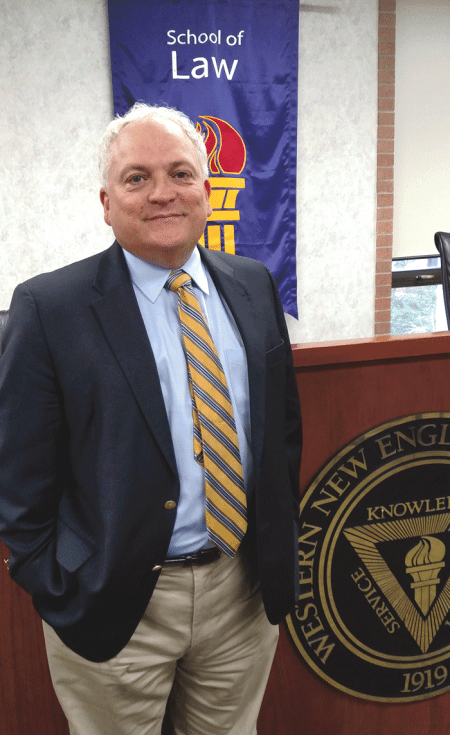


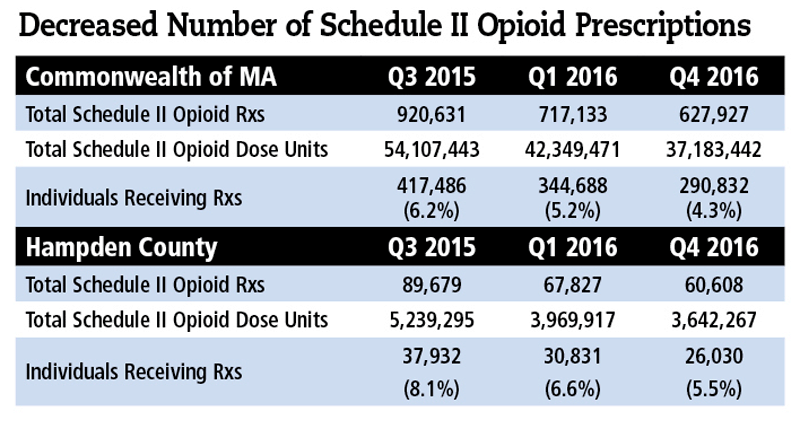
 Even with media and government now intently aware of the opioid crisis, a recent report still projects that 500,000 people may die from these drugs over the next decade. But the groundwork is being laid, through multi-pronged strategies, to stem the tide of overdoses and deaths. It’s a tall order, those in healthcare say, but they’re hopeful.
Even with media and government now intently aware of the opioid crisis, a recent report still projects that 500,000 people may die from these drugs over the next decade. But the groundwork is being laid, through multi-pronged strategies, to stem the tide of overdoses and deaths. It’s a tall order, those in healthcare say, but they’re hopeful.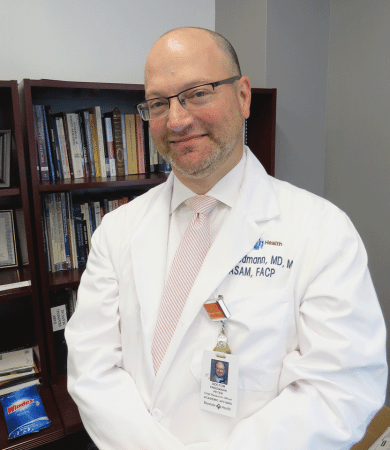


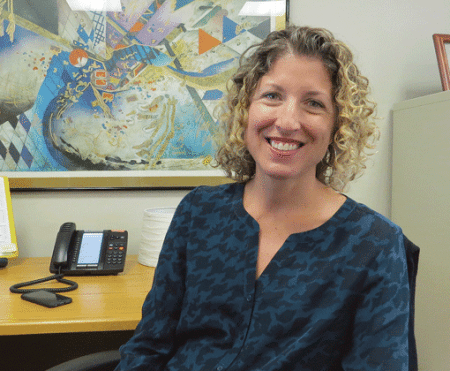
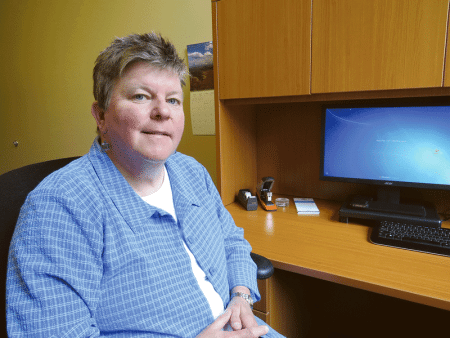
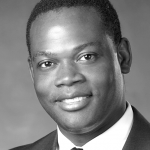







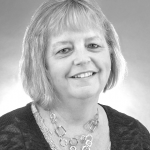 Jocelyn, now vice president/Marketing manager, joined the bank eight years ago as Online Banking coordinator; shortly after, she moved to the Marketing Department as Marketing coordinator, was promoted to Marketing manager, then assistant vice president/Marketing manager, in which position she holds responsibilities for bank advertising, branding, sponsorships, and charitable giving, among other duties. She has extensive experience in the banking industry, and holds an associate’s degree from Bay Path University.
Jocelyn, now vice president/Marketing manager, joined the bank eight years ago as Online Banking coordinator; shortly after, she moved to the Marketing Department as Marketing coordinator, was promoted to Marketing manager, then assistant vice president/Marketing manager, in which position she holds responsibilities for bank advertising, branding, sponsorships, and charitable giving, among other duties. She has extensive experience in the banking industry, and holds an associate’s degree from Bay Path University.







 Massachusetts lawmakers are attempting a novel approach to pregnant workers, by requiring employers to offer them accommodations similar to those given to disabled workers. The bill is a popular one and seems assured of becoming law, but some questions about implementation — and what companies will have to do to comply — remain.
Massachusetts lawmakers are attempting a novel approach to pregnant workers, by requiring employers to offer them accommodations similar to those given to disabled workers. The bill is a popular one and seems assured of becoming law, but some questions about implementation — and what companies will have to do to comply — remain.
